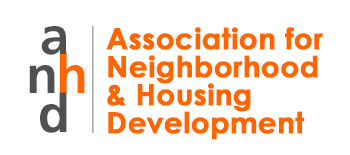HPD Takes Important Step Forward for “Permanent Affordability”
New York City took an unannounced, but important step towards making the affordable housing it finances “permanently affordability.” In the most recent round of Request for Proposals (RFPs) issued by the Department of Housing Preservation and Development (HPD), the City created a new regulatory requirement that will allow HPD to ensure that all affordable housing built on city-owned land through a Request for Proposals process will keep the affordability benefit in perpetuity.
ANHD applauds Mayor de Blasio and Commissioner Torres-Springer for this significant policy step, which will make sure that the affordable housing we pay for and build today remains affordable in order to benefit future generations of New Yorkers. Under the simple yet effective new policy, HPD will hold a “remainder interest” in any land that it transfers the title of for affordable housing development. This legal tool will put the City in control at the end of the original affordability regulatory period, giving the City the authority to require that the affordability benefits be renewed and extended.
This new policy doesn’t solve the “expiring use problem” once and for all, and there is more to do. But, it is a significant step forward.
The threat the “expiring use crisis” poses to city-backed affordable housing – and the need to solve the problem going forward – is well known. Over the past few decades, we have seen tens of thousands of units of Mitchell-Lama and Section 8 built for low-income residents lose their affordability as short-term regulatory agreements have allowed the for-profit owners to opt-out of the affordability requirements when the housing market has risen around the buildings. Seeing this squandering of public investment and public benefit, the de Blasio Administration has taken a number of significant steps to address the problem.
ANHD has been especially concerned by the coming “expiring use crisis” in the many city-backed housing built with Low-Income Housing Tax Credit (LIHTC) financing. According to ANHD’s A Permanent Problem Requires a Permanent Solution report on this issue, there are 169,561 units of affordable housing in all five boroughs at risk for losing their affordability between 2017 and 2037 – over 10,000 at-risk each and every year – because of expiring affordability restrictions.
The City’s new policy will address this problem going forward when housing is built on public land. HPD- owned land, although increasingly scarce, offers a path for progressive city policy implementation because of the City’s direct control over the land’s development.
Expiring, short-term affordable housing contributes to the housing crisis for all low- to moderate-income New Yorkers. ANHD believes the solution to this problem is to build permanently affordable housing and implement new policies to preserve existing at-risk units. One of the policy solutions ANHD suggested in our white paper, Permanent Affordability: Practical Solutions, would guarantee that subsidized units were no longer lost without permission from the public and transition units from short-term to permanent affordability.
The City has already taken some important steps with this move, along with some other recent actions to extend the affordability term in LIHTC financing and require permanent affordability in development on NYCHA land. But there are other essential steps the City should now consider:
- Build with mission-driven developers who will commit to automatically renewing the affordability requirements.
- Continue to extend the affordability term required for LIHTC financing, which the city has recently begun to shift from a 30-year requirement to a 60-year requirement.
- Adjust the financing and regulatory model of all city-backed affordable housing developments – not just on city-owned land – so the city is able to require the developer to commit to permanent affordability.
ANHD applauds HPD for their initiative in creating a tool that will keep housing affordable in the long term on HPD-owned sites, and will continue to champion permanent affordability to maximize the benefit for the public in all city-backed housing.
 ANHD 2016 Building the Community Development Movement
ANHD 2016 Building the Community Development Movement
